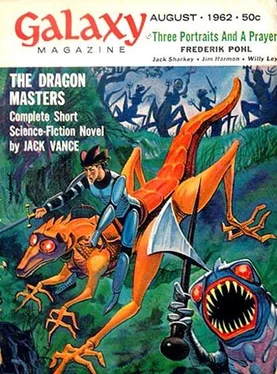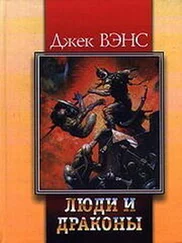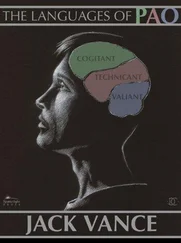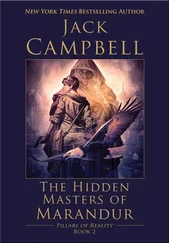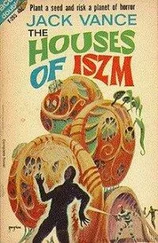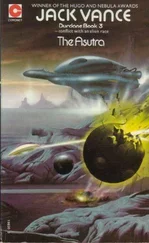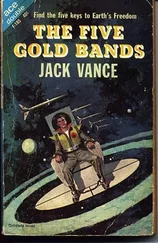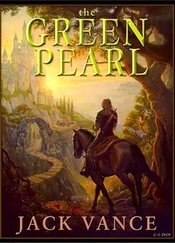Jack Vance - The Dragon Masters
Здесь есть возможность читать онлайн «Jack Vance - The Dragon Masters» весь текст электронной книги совершенно бесплатно (целиком полную версию без сокращений). В некоторых случаях можно слушать аудио, скачать через торрент в формате fb2 и присутствует краткое содержание. Год выпуска: 1962, Издательство: Galaxy Publishing Corporation, Жанр: Фантастика и фэнтези, на английском языке. Описание произведения, (предисловие) а так же отзывы посетителей доступны на портале библиотеки ЛибКат.
- Название:The Dragon Masters
- Автор:
- Издательство:Galaxy Publishing Corporation
- Жанр:
- Год:1962
- ISBN:нет данных
- Рейтинг книги:5 / 5. Голосов: 1
-
Избранное:Добавить в избранное
- Отзывы:
-
Ваша оценка:
- 100
- 1
- 2
- 3
- 4
- 5
The Dragon Masters: краткое содержание, описание и аннотация
Предлагаем к чтению аннотацию, описание, краткое содержание или предисловие (зависит от того, что написал сам автор книги «The Dragon Masters»). Если вы не нашли необходимую информацию о книге — напишите в комментариях, мы постараемся отыскать её.
The Dragon Masters — читать онлайн бесплатно полную книгу (весь текст) целиком
Ниже представлен текст книги, разбитый по страницам. Система сохранения места последней прочитанной страницы, позволяет с удобством читать онлайн бесплатно книгу «The Dragon Masters», без необходимости каждый раз заново искать на чём Вы остановились. Поставьте закладку, и сможете в любой момент перейти на страницу, на которой закончили чтение.
Интервал:
Закладка:
Ervis Carcolo was an energetic man, intent upon restoring Happy Valley to the ascendancy it had enjoyed some twelve generations before. During these harsh times, before the advent of the dragons, men fought their own battles, and the men of Happy Valley had been notably daring, deft, and ruthless.
The Dragon Masters, p. 11.And in The Dragon Masters, men have been reduced to something truly less than human by the Basics—not only have they been bred into specialized serving animals like dogs, but their brains can no longer encompass the opposite concept to servitude. But Vance does not even let go of it there—he does not even permit humanity the moral superiority of the victim’s position in such a degrading situation. For when men get the chance, they do exactly the same thing, breeding monstrous brute dragons out of their sapient Basic prisoners. Both men and Basics are guilty of a racial crime that goes genocide one better. And who is to say that the dragons, who snarl and bicker in their servitude, have not retained more dignity than the transformed humanoids who sincerely worship their masters?
Finally, after Banbeck and Carcolo have unwillingly combined forces to destroy the Basics, instead of a conversion to human solidarity, we have Carcolo pursuing his endless and in this instance powerless and therefore insane attempts to one-up Banbeck, and Banbeck—throughout the book the most sympathetic figure—executing Carcolo for expediency’s sake, for “his duty to himself, his people, his ultimate goal.”
A line from The Dying Earth sums up Vance’s oeuvre, his tone, his stance, his perspective on humanity perfectly: “Now, in the last fleeing moments, humanity festers, rich as rotting fruit. . . .”
How then has such a body of work remained in such relative obscurity? Here is a writer who has been around for three decades, and who is perhaps the premier stylist in the science fiction genre in terms of fusing prose, tone, viewpoint, content and mood into a seamless synergetic whole. A writer whose Weltanschauung is unsurpassed in the genre for its maturity and unique for its mordancy. Why has Jack Vance not been recognized as the peer of Bradbury, Heinlein, and Aldiss, let alone of Ellison, Zelazny or Delany?
Having looked at what the work of Jack Vance is, we might find it instructive to look at what it is not. Vance has produced no truly outstanding characters that are remembered long after the stories that contain them are forgotten, nor has he produced tales that live on as epic sagas, as instant myths. He has produced no quintessential single work to point to as a peak achievement—which is to say that he is not famous for any hero, nor for any story, nor for any book. But then, Vance doesn’t seem to set out to do any of these things. He has chosen to write a sort of fiction not calculated to bring him fame and fortune, nor to make him an epic storyteller, nor a creator of magnetic characters, nor to produce sporadic masterworks. It is a kind of fiction that is definitely a minority taste, not a mass-market addiction—nor is it ever likely to become anything else. But that does not make Vance’s work any less valuable, for the taste that it satisfies is subtle and sophisticated. To enjoy Vance, you have to enjoy words as sculpture on paper, reality as a baroque landscape, and sardonicism for its own elegance. You are offered this as the main course, hors d’oeuvres raised to smorgasbord.
And why not? This stream of literature has always been with us and always will be. It includes The Tales of a Thousand and One Nights, the fairy tales of the Brothers Grimm, the Jerry Cornelius and Elric stories of Michael Moorcock, the work of Cordwainer Smith, and perhaps the best of Roger Zelazny. Mervin Peake’s Gorhmangast Trilogy is perhaps the ultimate example of this architectural approach to fiction: in this case the major character quite literally is an aging castle.
In our modern Bauhaus age where form is supposed to follow function, Jack Vance is a man who makes style generate content. In what has been primarily a literature of logical positivism, he insinuates the metaphor of magic and the magic of metaphor into every nook and cranny, into every dark glade and dell of his fictional landscape.
But Vance’s universe is not like the sanitary Fantasy Lands of Walt Disney nor the smarmy heroics of J. R. R. Tolkien nor the romanticized grandeur of the Galactic Roman Empire; his worlds have an existential and moral reality, and are informed by a mordant dubiousness about man and his works.
This is not the sort of fiction with the widest mass appeal, particularly within the science fiction genre, but it is the sort of fiction which in the long run continues to be read by generations of cognoscenti, and thus endures.
Maybe that’s all Jack Vance really cares about, if he even cares about that. My one meeting with the man made me wonder. It was at a post-convention party at Poul Anderson’s house after the 1968 World Science Fiction Convention in the San Francisco Bay Area, where Vance and many other science fiction writers live. When I was introduced to Vance I was jarred by the dissonance between the man and the fiction: was this rotund fellow in glasses, wearing T-shirt and jeans and drinking a beer really Jack Vance? At the time, I dressed in noticeable colors, and Vance was quick to comment on my fancy—one might almost say loud—clothing. He advised me against it, in a philosophical sense, pointing out his own attire as the ideal mode of dress. By dressing in total anonymity, Vance said, you force people to deal with the real you and not with what you advertise as yourself.
Jack Vance himself does not choose to dress in the mode of his own characters. I have heard that he spent considerable time in the islands of the South Pacific, far from the Byzantine complexities of civilization as a Vance character would see and enjoy it. So it may very well be that Vance’s biting sense of irony extends even to the style of his own baroque imaginings, that he has remained invisible not so much by neglect as by choice.
Norman Spinrad
New York
Works Cited
The Dying Earth Lancer Science Fiction Library. New York: Lancer Books, 1972 (third printing, September 1972).
The Dragon Masters New York: Ace Books, 1962 (first printing, reproduced here).
The Eyes of the Overworld New York: Ace Books, 1966 (first printing).
Marune Alastor 933. New York: Ballantine Books, 1975 (first printing).

Chapter 1
The apartments of Joaz Banbeck, carved deep from the heart of a limestone crag, consisted of five principal chambers, on five different levels. At the top were the reliquarium and a formal council chamber: the first a room of somber magnificence housing the various archives, trophies and mementos of the Banbecks; the second a long narrow hall, with dark wainscoting chest-high and a white plaster vault above, extending the entire width of the crag, so that balconies overlooked Banbeck Vale at one end and Kergan’s Way at the other.
Below were Joaz Banbeck’s private quarters: a parlor and bedchamber, then next his study and finally, at the bottom, a workroom where Joaz permitted none but himself.
Entry to the apartments was through the study, a large L-shaped room with an elaborate groined ceiling, from which depended four garnet-encrusted chandeliers. These were now dark; into the room came only a watery gray light from four honed glass plates on which, in the manner of a camera obscura, were focused views across Banbeck Vale. The walls were paneled with lignified reed; a rug patterned in angles, squares and circles of maroon, brown and black covered the floor.
Читать дальшеИнтервал:
Закладка:
Похожие книги на «The Dragon Masters»
Представляем Вашему вниманию похожие книги на «The Dragon Masters» списком для выбора. Мы отобрали схожую по названию и смыслу литературу в надежде предоставить читателям больше вариантов отыскать новые, интересные, ещё непрочитанные произведения.
Обсуждение, отзывы о книге «The Dragon Masters» и просто собственные мнения читателей. Оставьте ваши комментарии, напишите, что Вы думаете о произведении, его смысле или главных героях. Укажите что конкретно понравилось, а что нет, и почему Вы так считаете.
